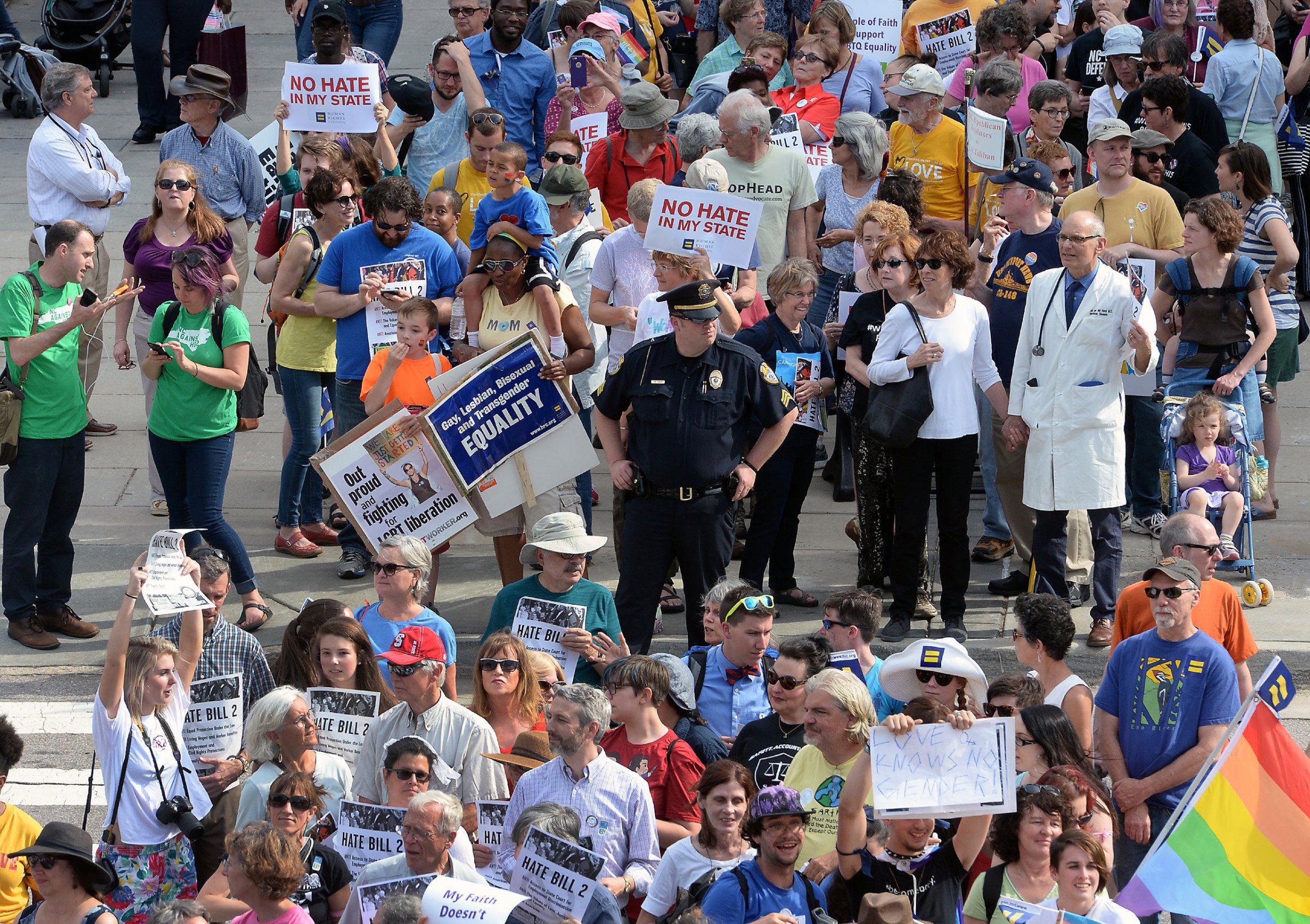
My wife and I live in Charlotte, N.C., and this past year, we made what was probably the biggest decision of our lives: we decided that we wanted to become parents. We were excited by the thought of raising a child in the city that we both love, and we felt supported and protected as a same-sex couple, because the city had just passed a law that would have prevented public businesses from discriminating against us based on our sexual orientation. But then North Carolina enacted House Bill 2, which overturned local anti-discrimination measures and blocked other cities in the state from passing anti-discrimination laws.
Soon after, we experienced what that law now licenses throughout the state: we were turned away from a fertility clinic based on our sexual orientation. No customer should be denied service from a public business—whether it’s a restaurant, a hotel or a fertility clinic—just because of who they are.
Read more: My Transgender Daughter Taught Me Courage–and Patriotism
When I first called a local fertility clinic in February 2016, I was able to make an appointment without any trouble. I explained that Beverly and I were a same-sex couple and discussed our plans to use in vitro fertilization. I ended up scheduling an initial consultation for April 2016.
Imagine how shocked we were when a clinic staff member called me at the beginning of April to cancel my appointment. When I asked for more details, I was told that the clinic didn’t serve “same-sex couples.” Even though the clinic originally expressed no problems booking us for an appointment, they were now going back on their offer of service. As I hung up the phone, I felt devastated.
North Carolina’s new law was sending a strong message: it is OK to discriminate against people who are gay or transgender.
One week later, the clinic’s website was changed to add a new provision specifically excluding anyone who was using donor sperm. Under the new law, not only can the clinic change its policies, but my wife and I aren’t protected under any laws. We can’t file a discrimination complaint with the local Community Relations Committee, and we can’t have our case investigated.
It feels like our own state is against us.
To me and my wife, there is no doubt that this was a case of discrimination. Despite the unfairness of being denied service because we were a same-sex couple, the new law left us with virtually no protections against biased business practices. Many people have described HB2 as a “transgender bathroom bill,” and while trans people are disproportionately harmed by the bill, the truth is that it affects all members of the LGBT community—and all of us as a society because we’re leaving many behind.
Caitlyn Jenner: Bathroom Bills Send a Harmful Message to Transgender Youth
By signing HB2 into law, our lawmakers told us that we were no longer welcome in our state. But we know that’s not how many North Carolinians feel. We decided to join a lawsuit against this bill, along with other LGBT plaintiffs, because we know that discrimination does not reflect the values of North Carolina. We believe that it’s possible for families of all kinds to live and thrive in this state, and that no couple should have to go through what we did. We believe that North Carolina can and must do better.
More Must-Reads From TIME
- The 100 Most Influential People of 2024
- Coco Gauff Is Playing for Herself Now
- Scenes From Pro-Palestinian Encampments Across U.S. Universities
- 6 Compliments That Land Every Time
- If You're Dating Right Now , You're Brave: Column
- The AI That Could Heal a Divided Internet
- Fallout Is a Brilliant Model for the Future of Video Game Adaptations
- Want Weekly Recs on What to Watch, Read, and More? Sign Up for Worth Your Time
Contact us at letters@time.com